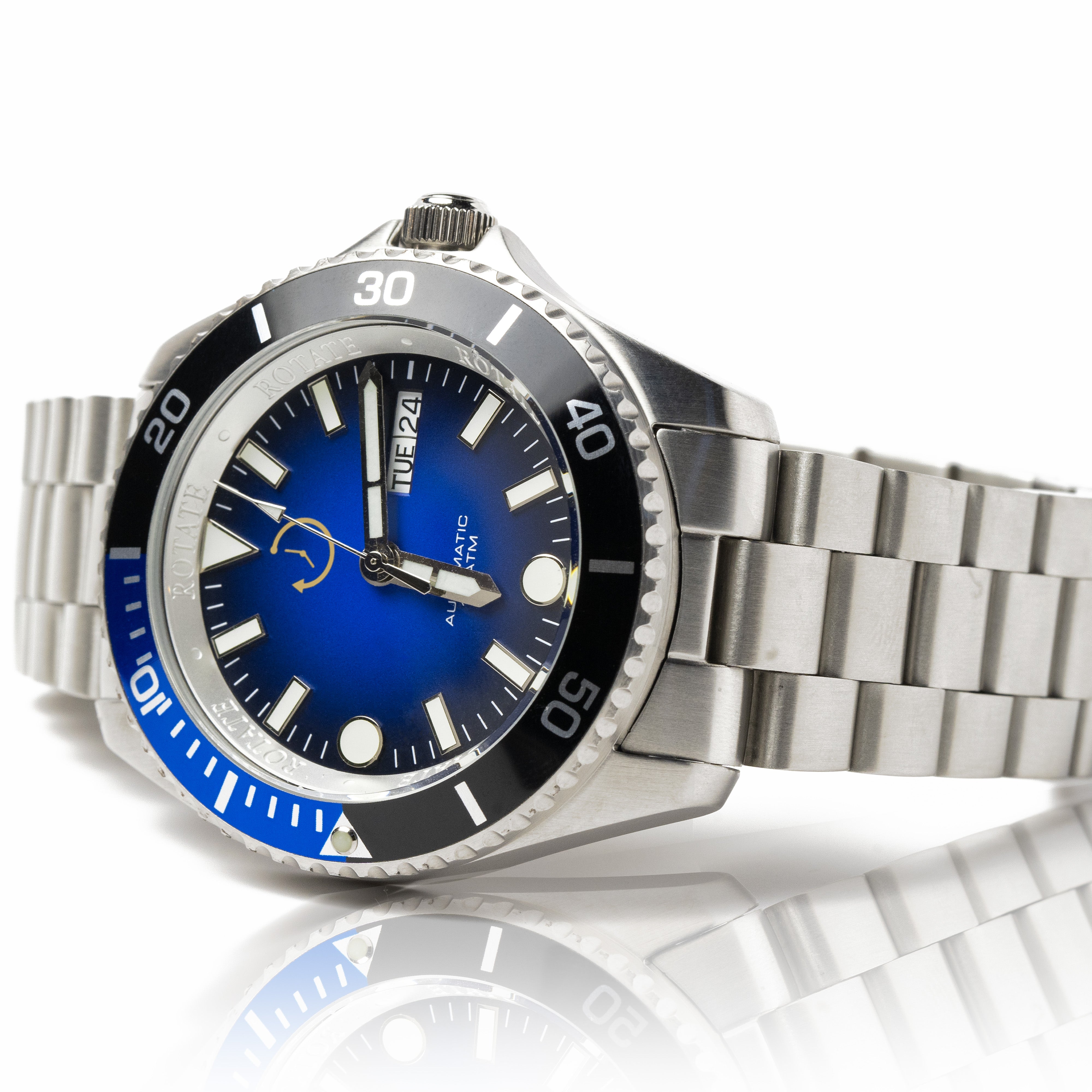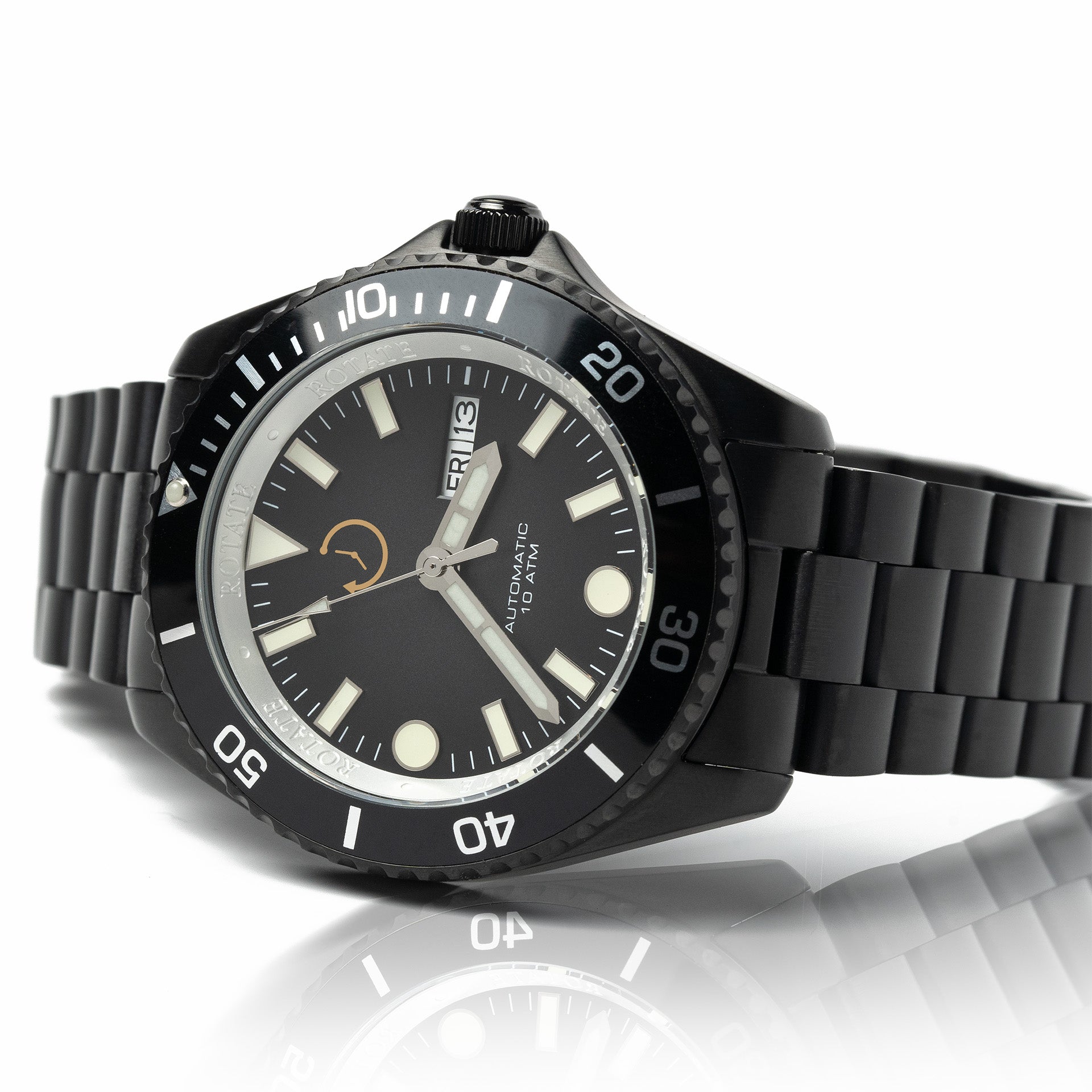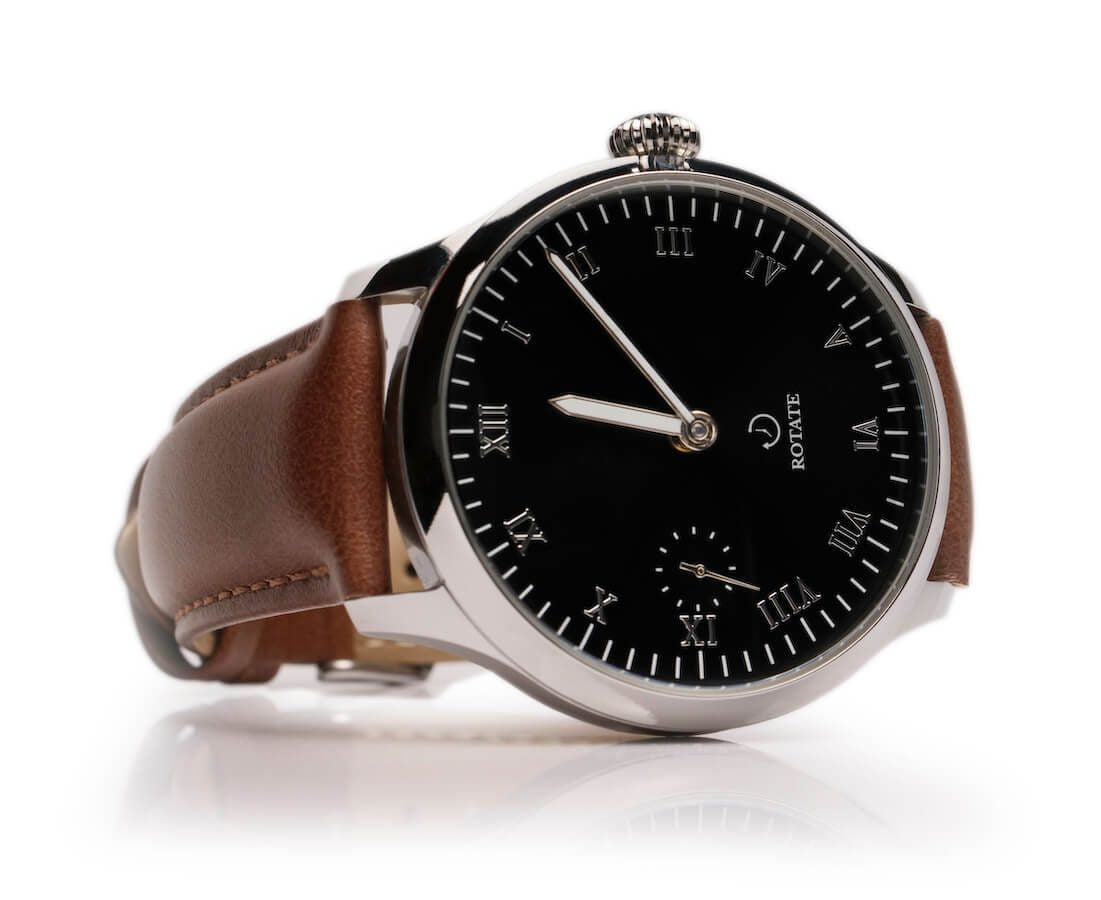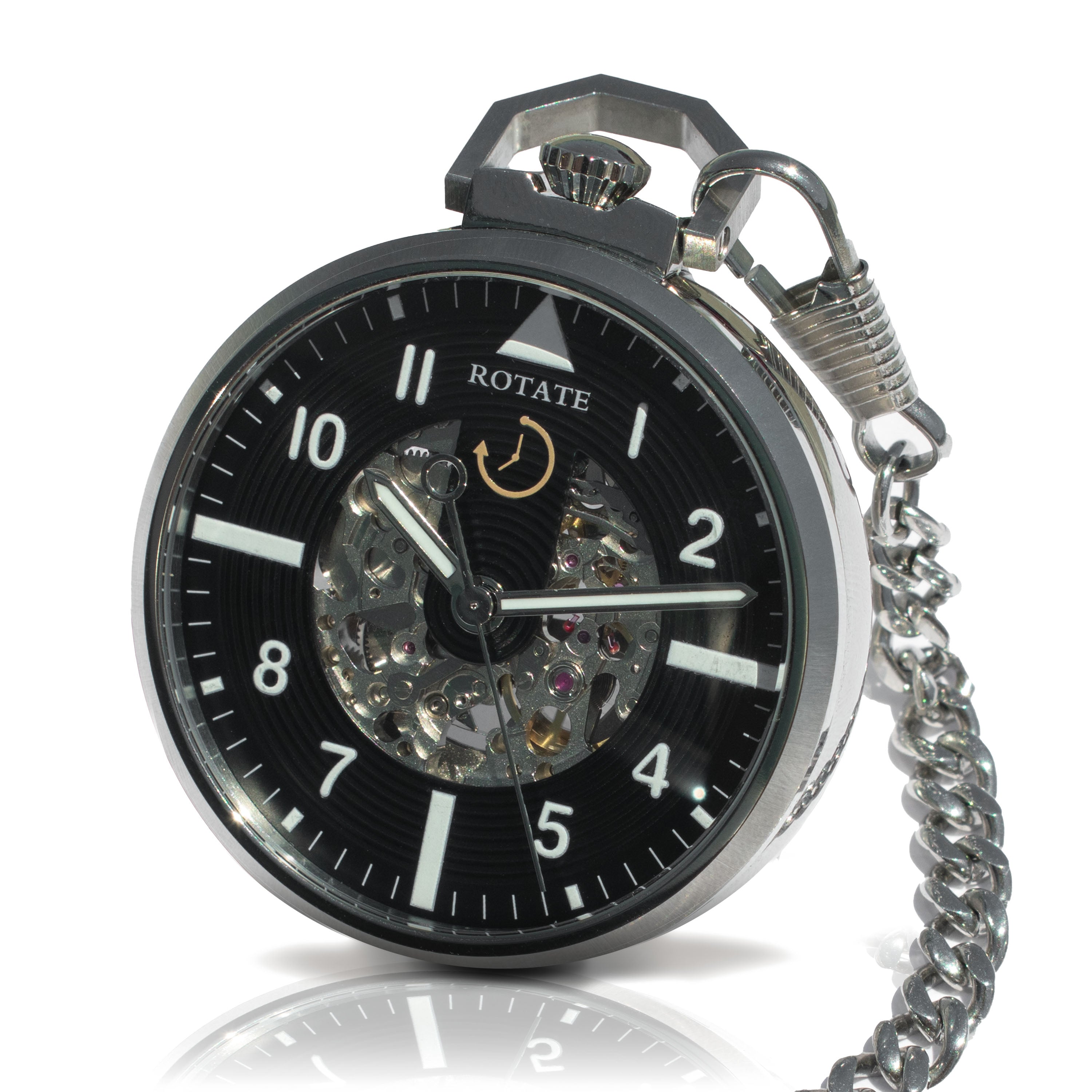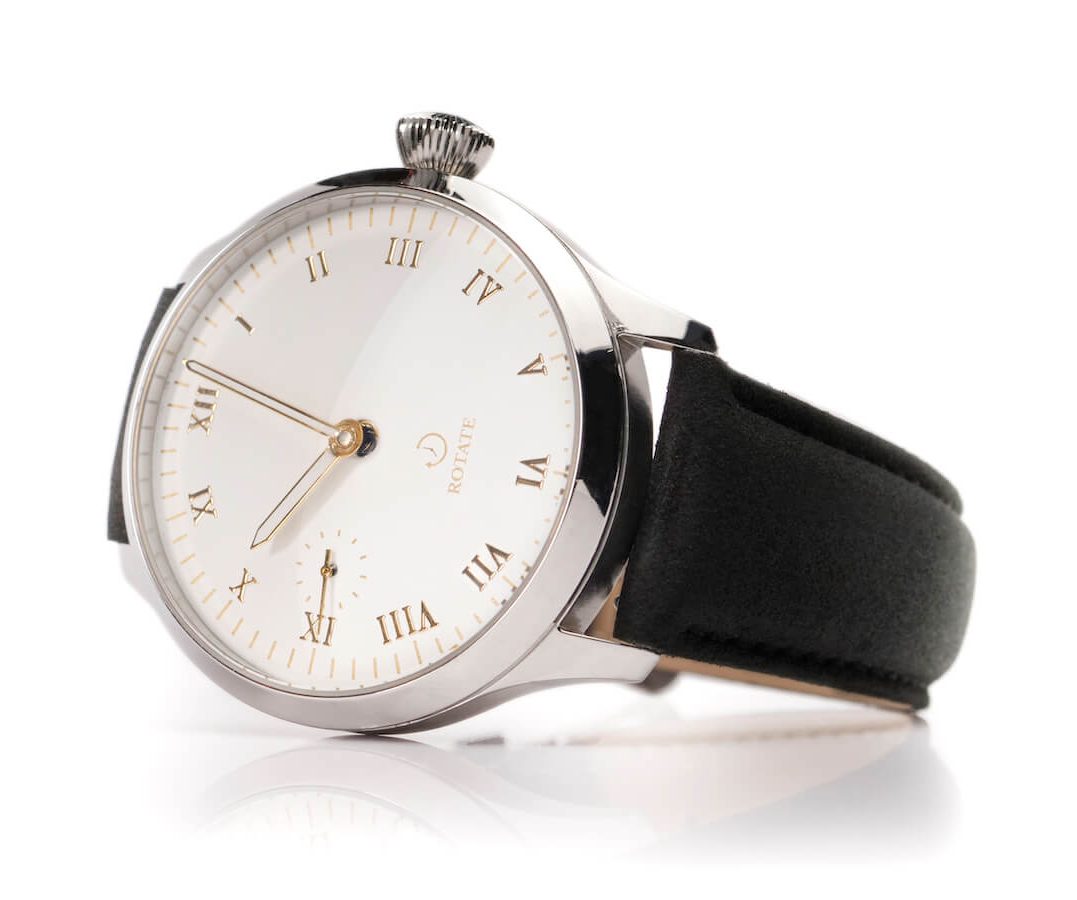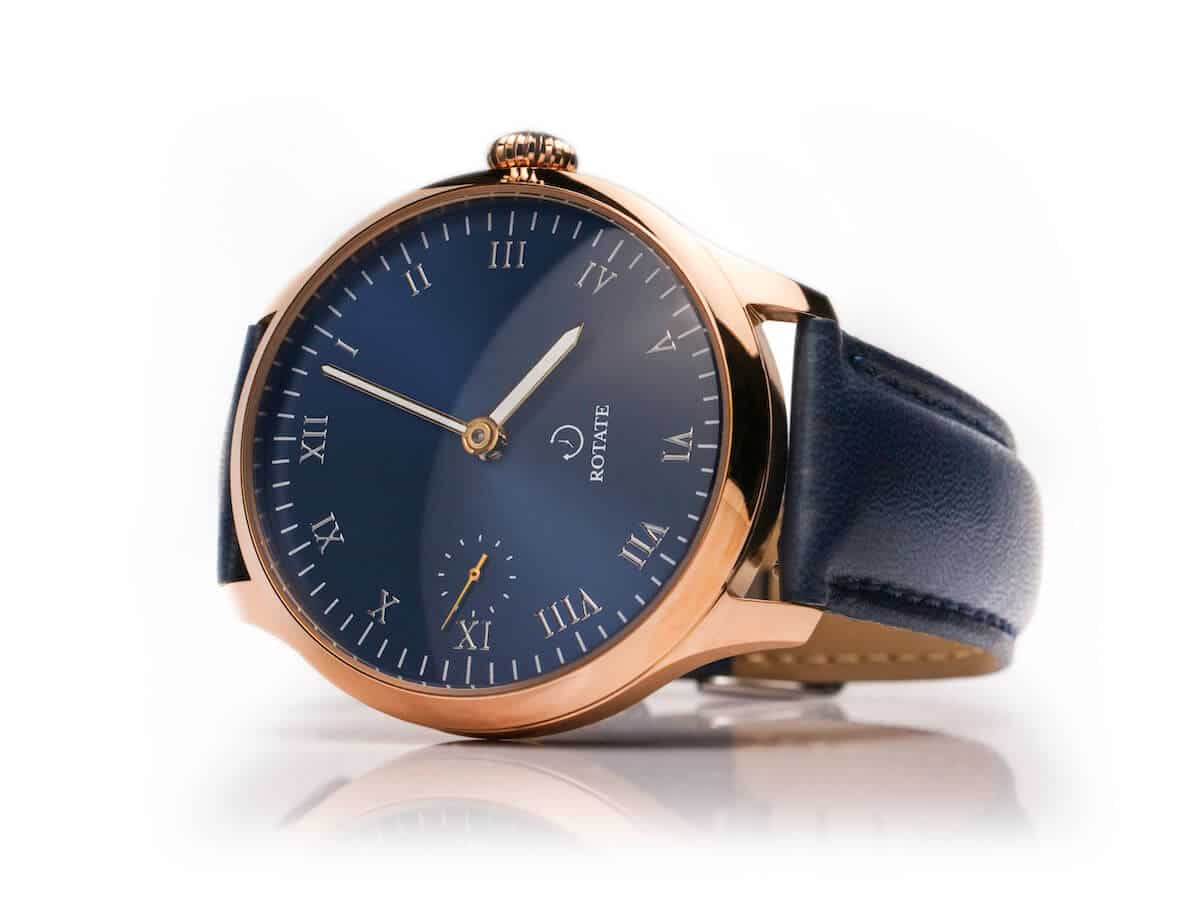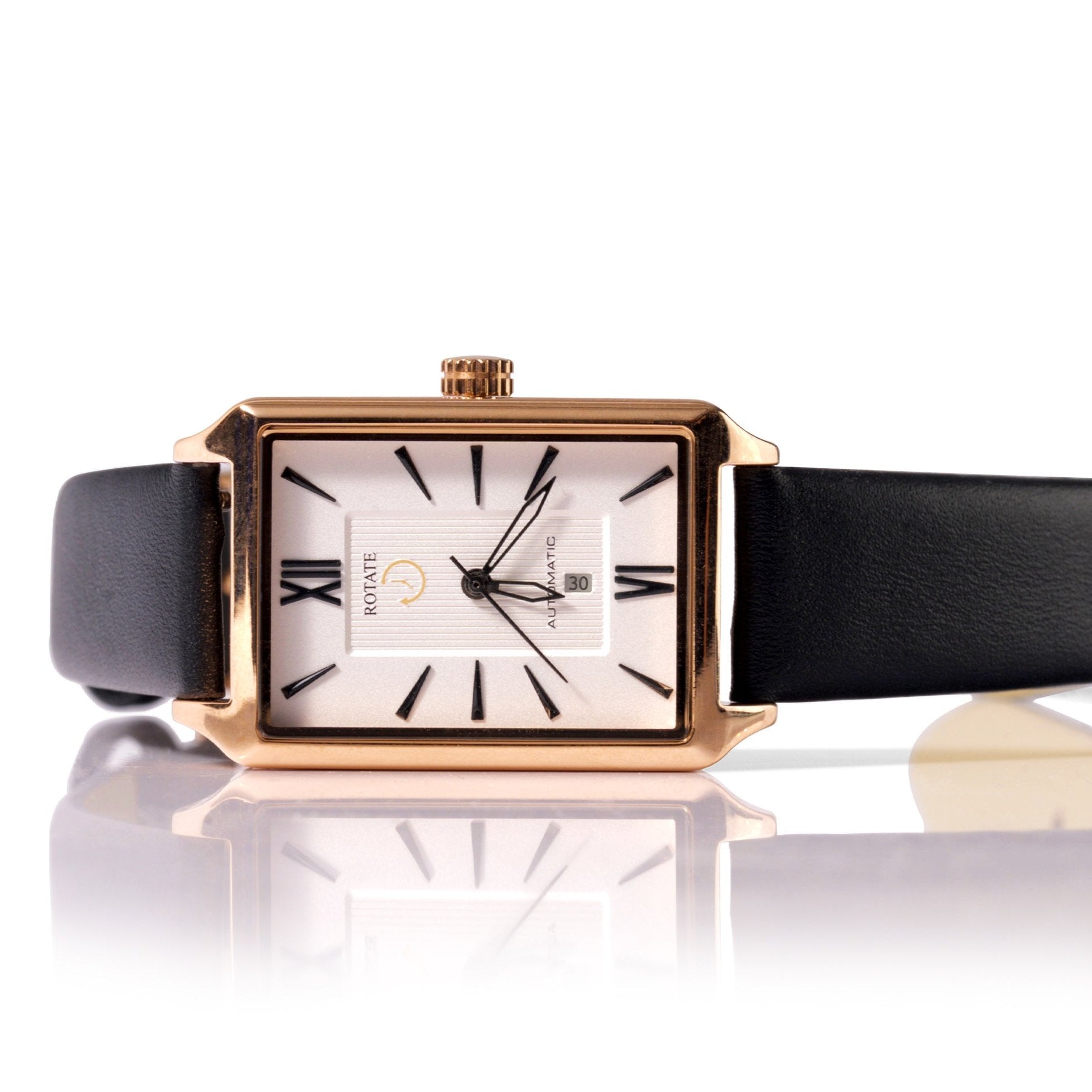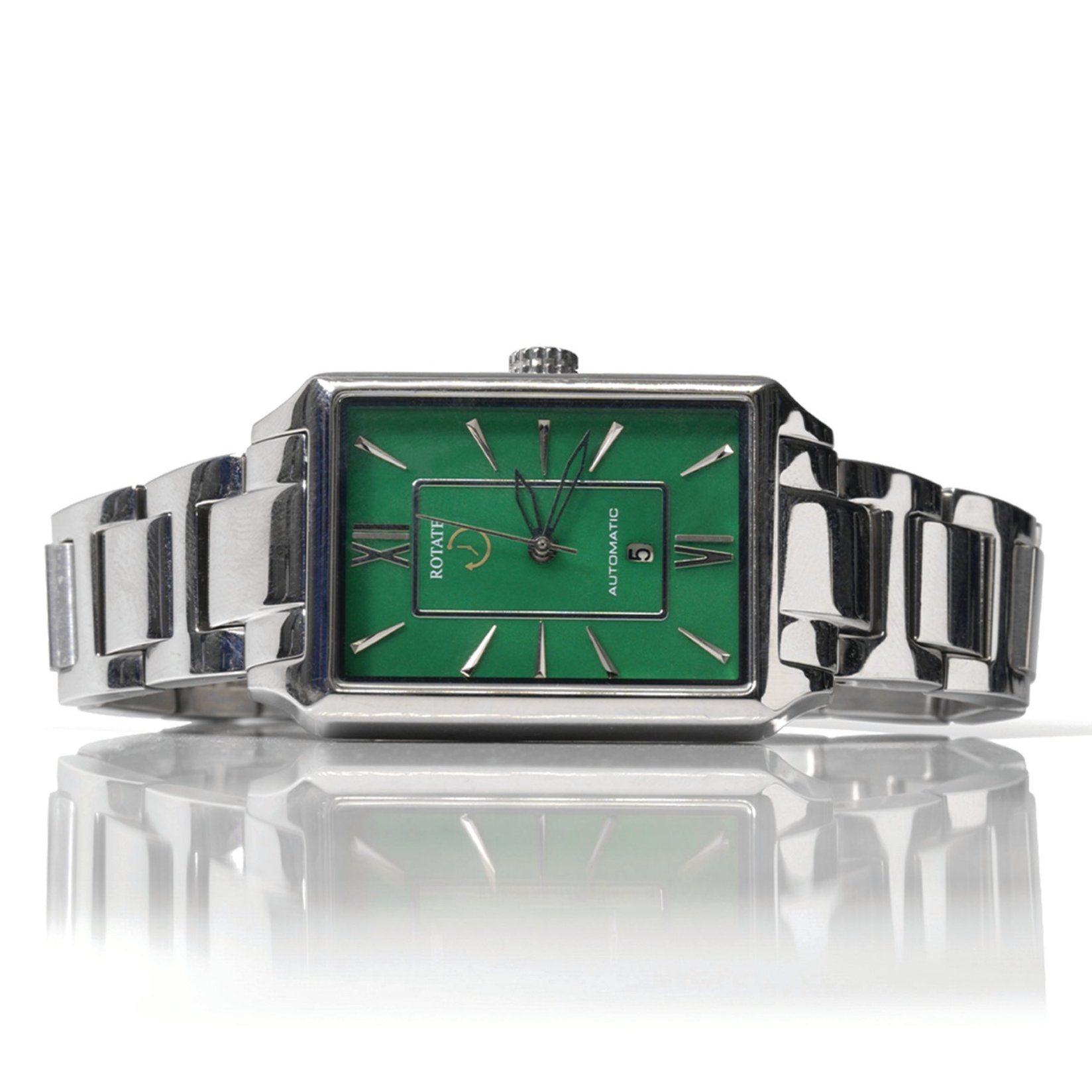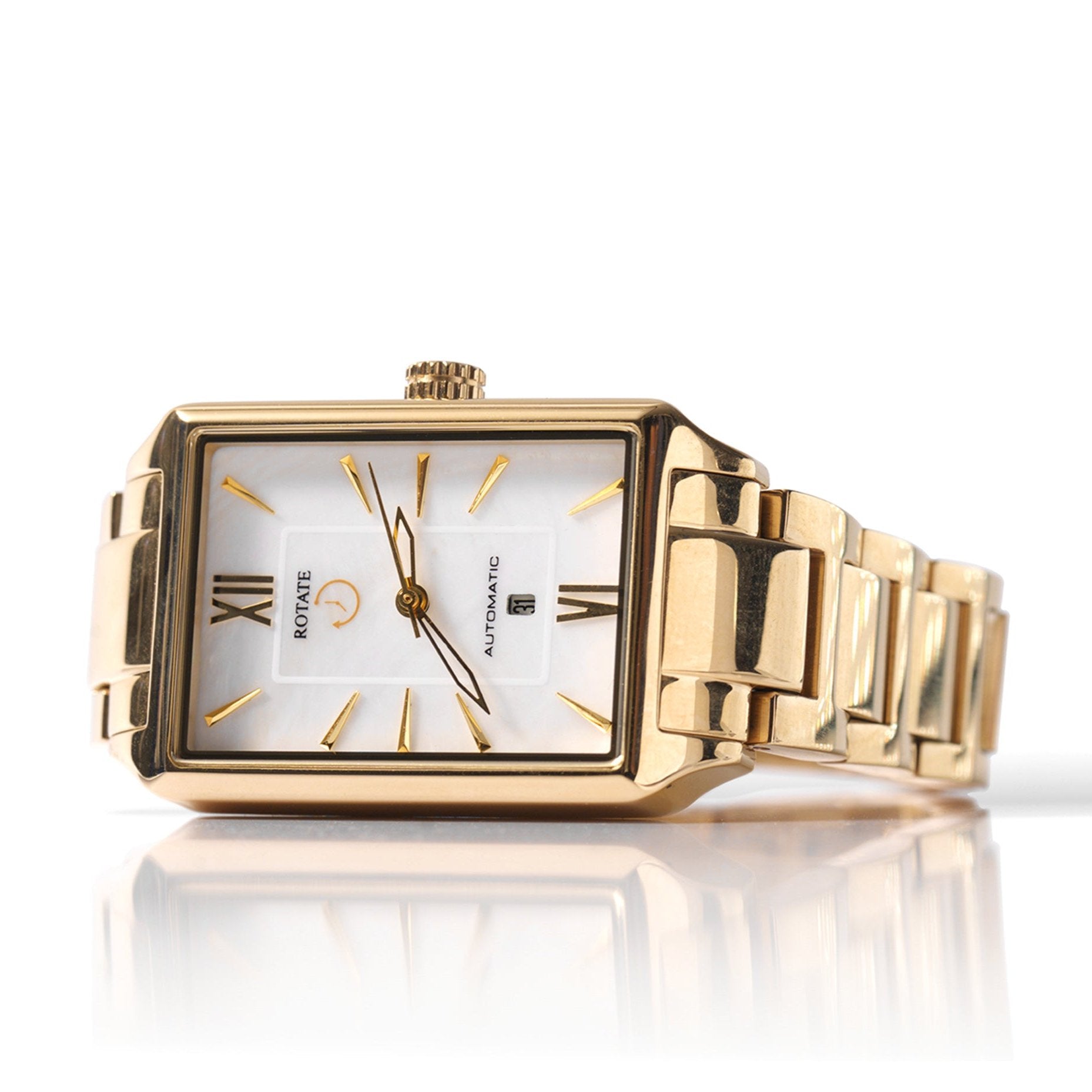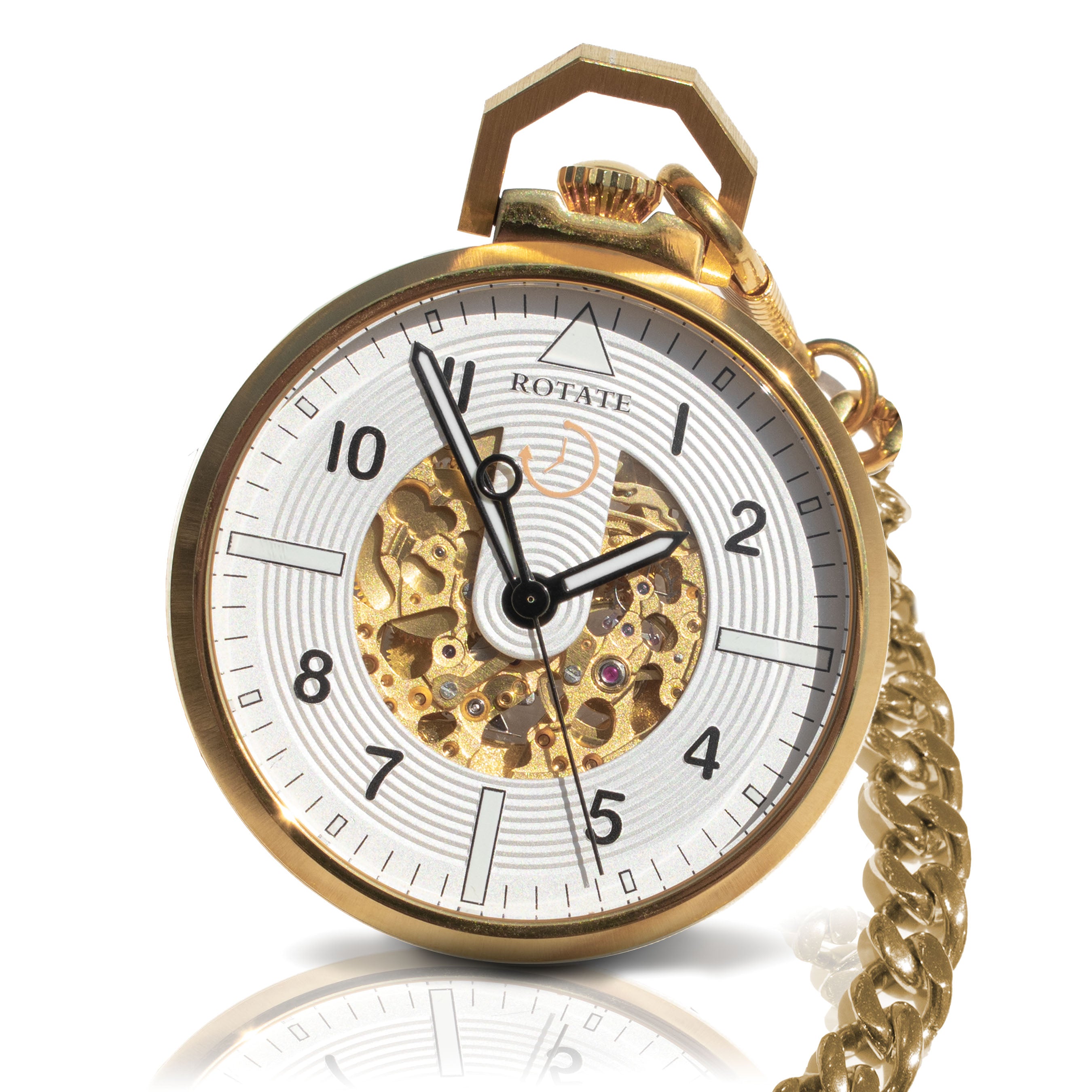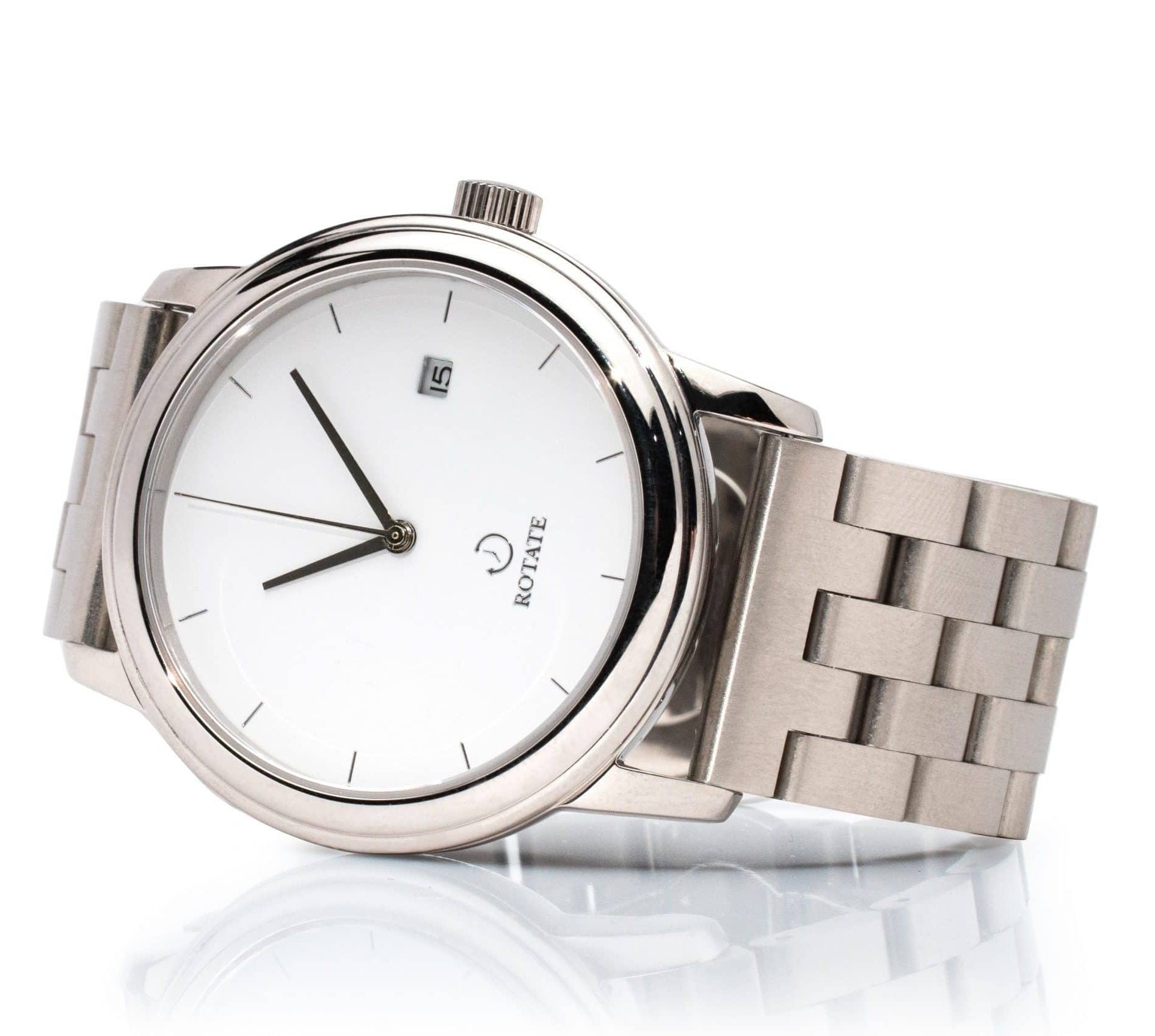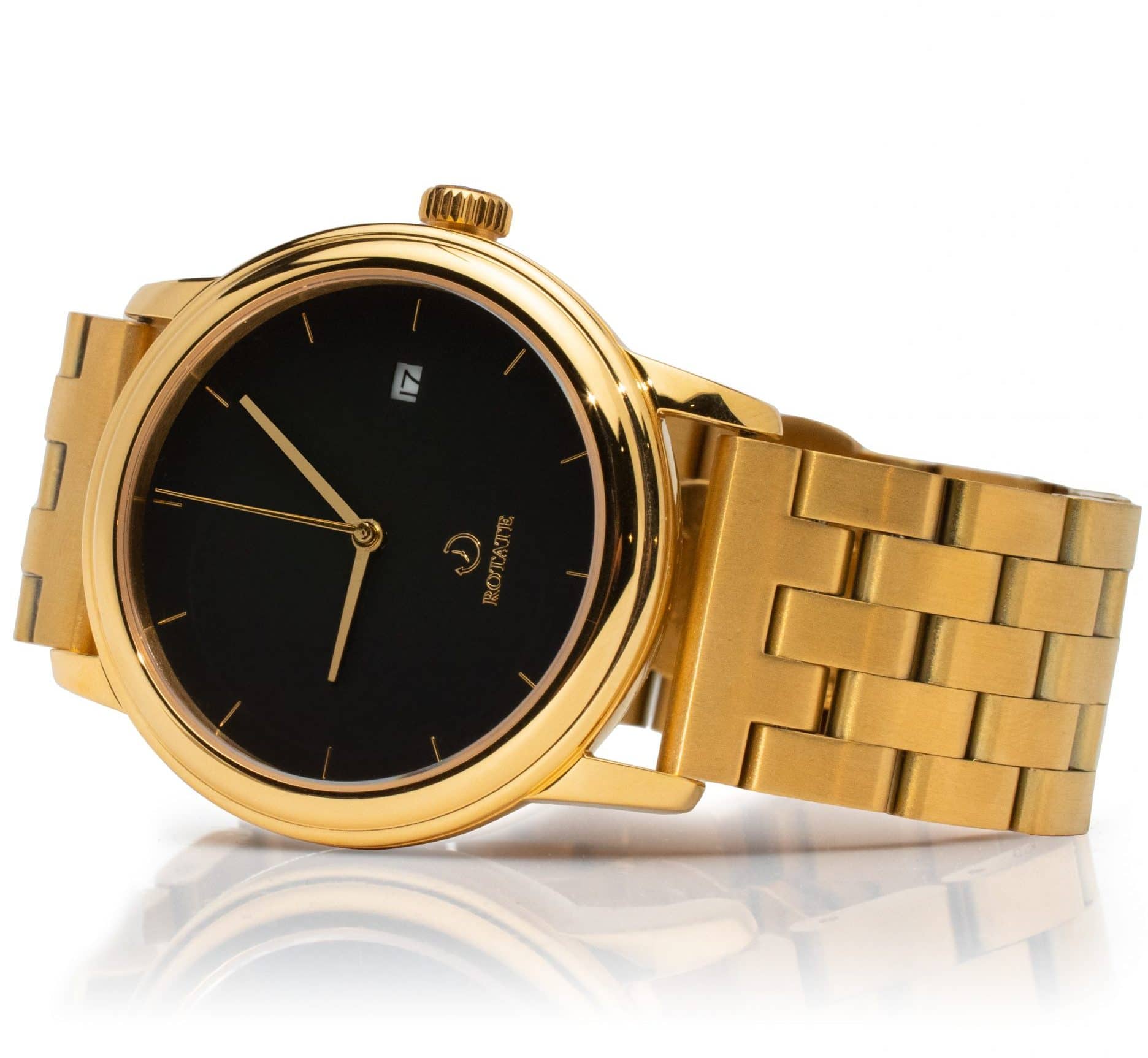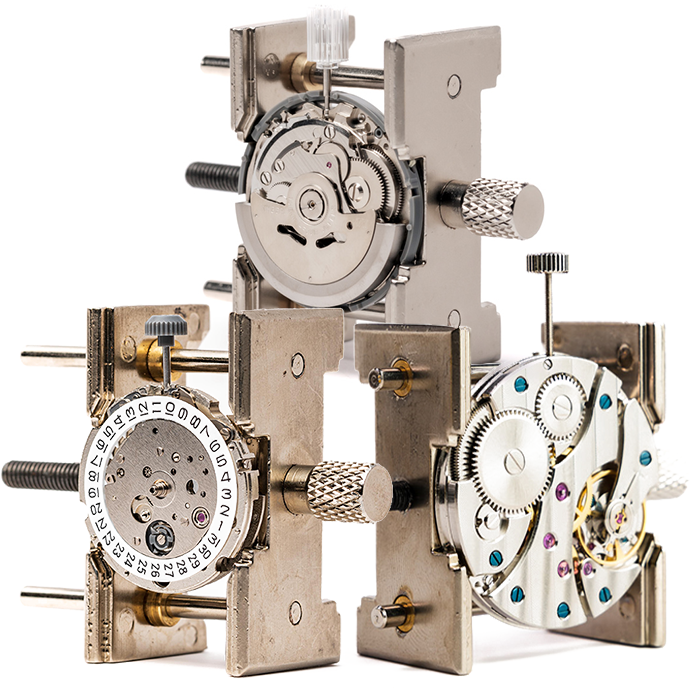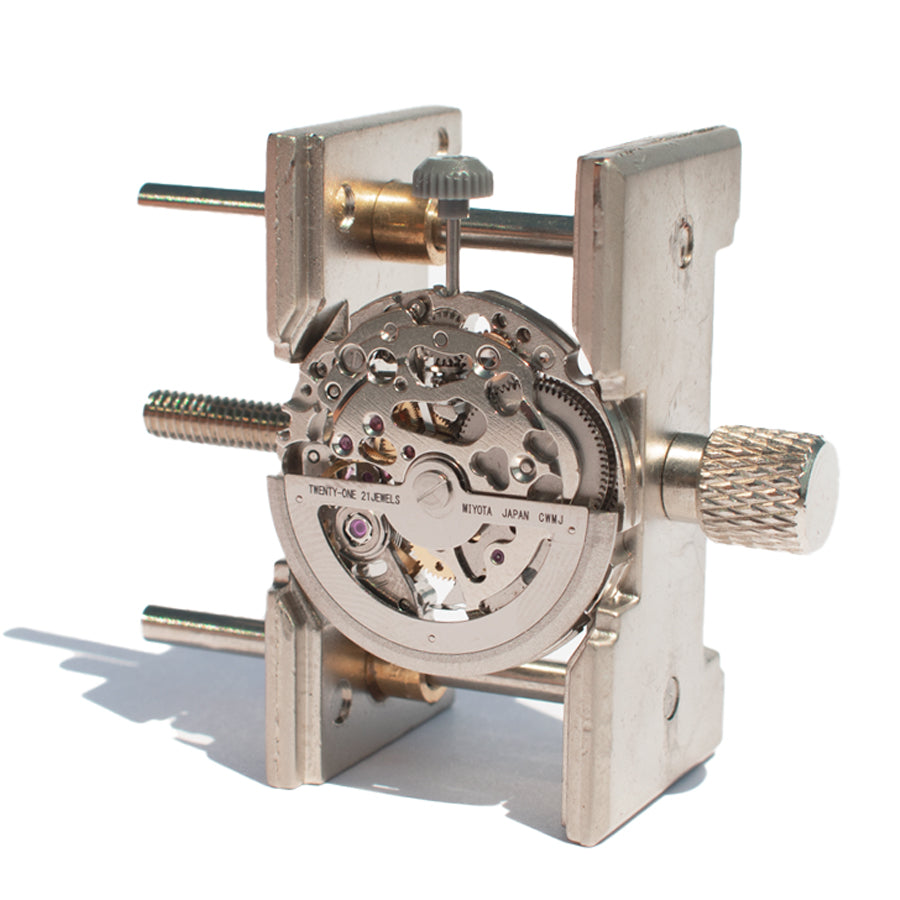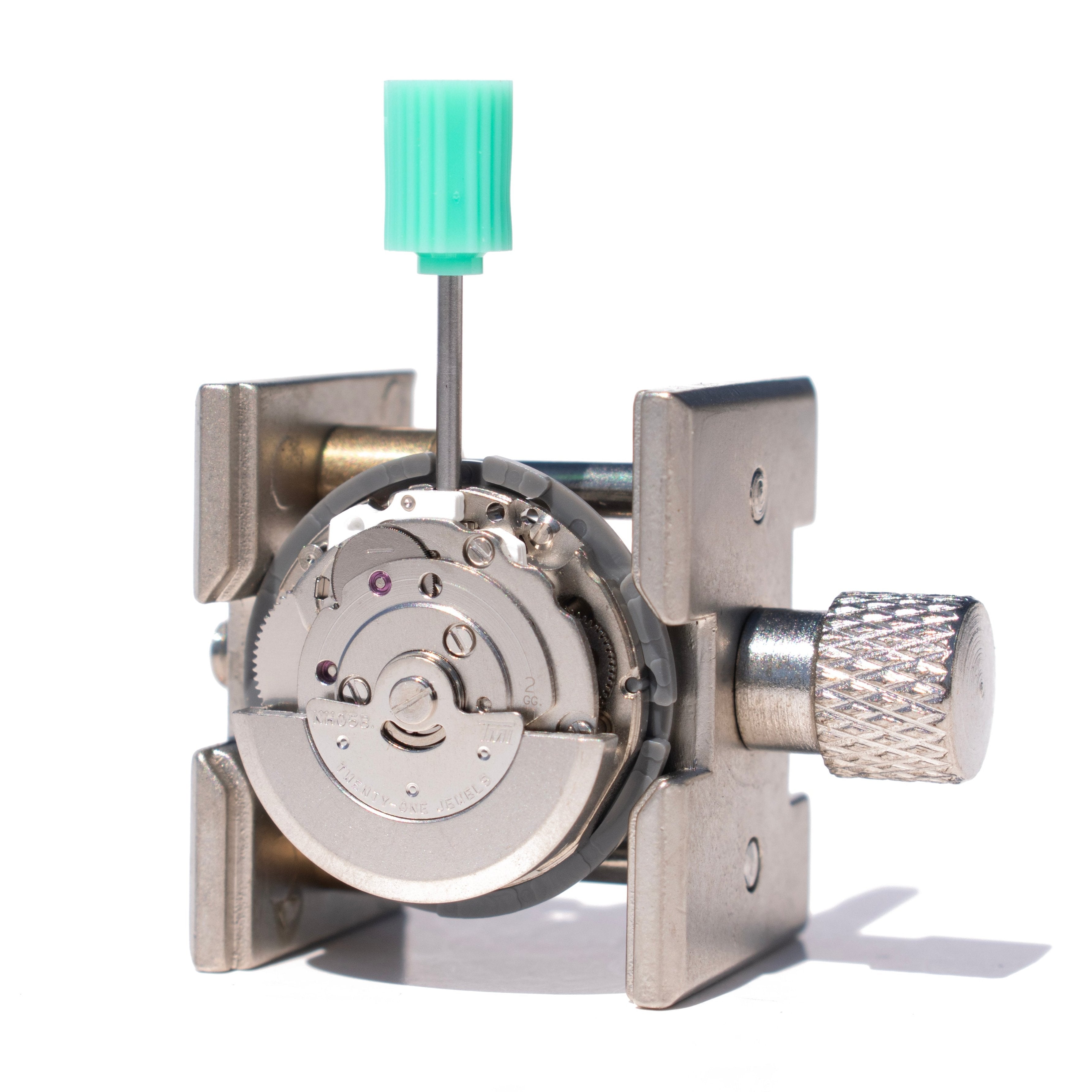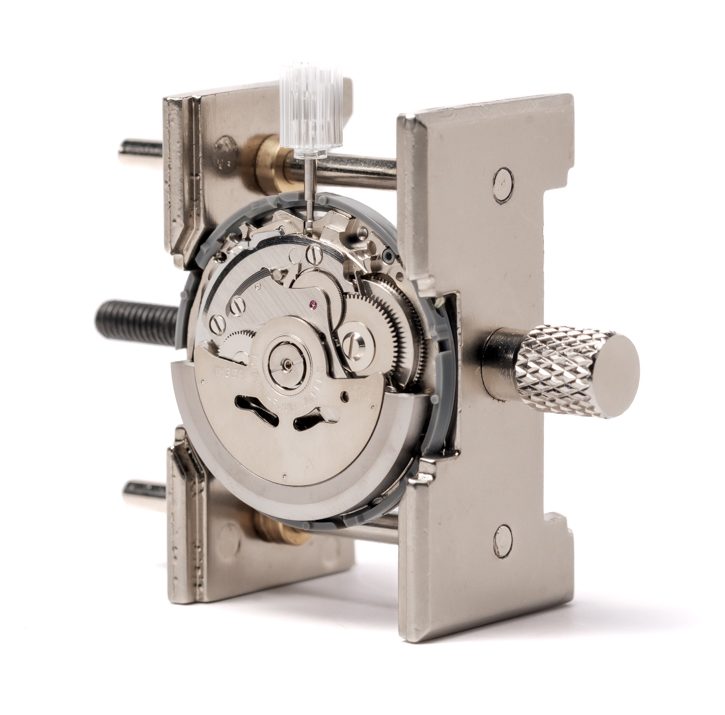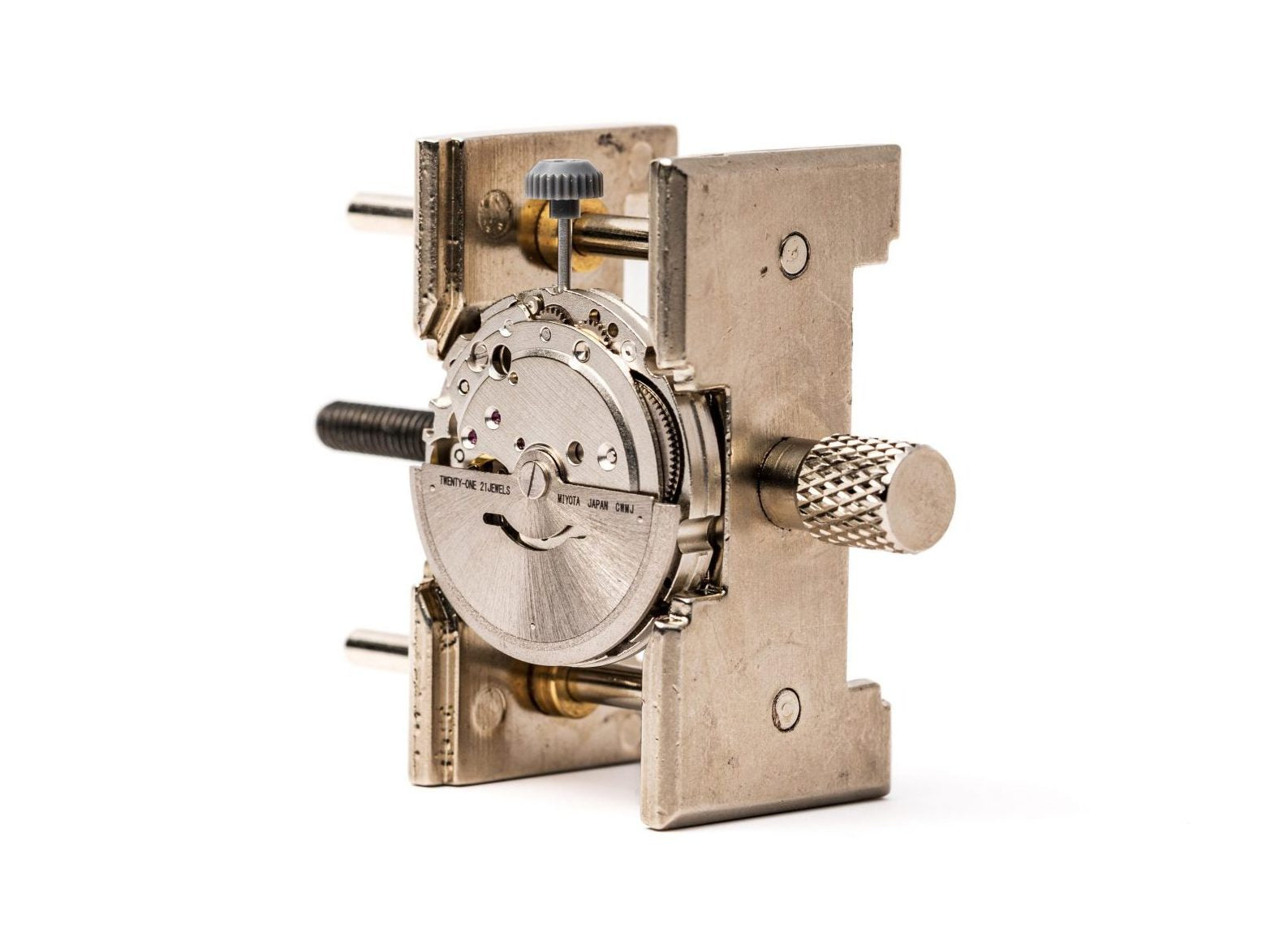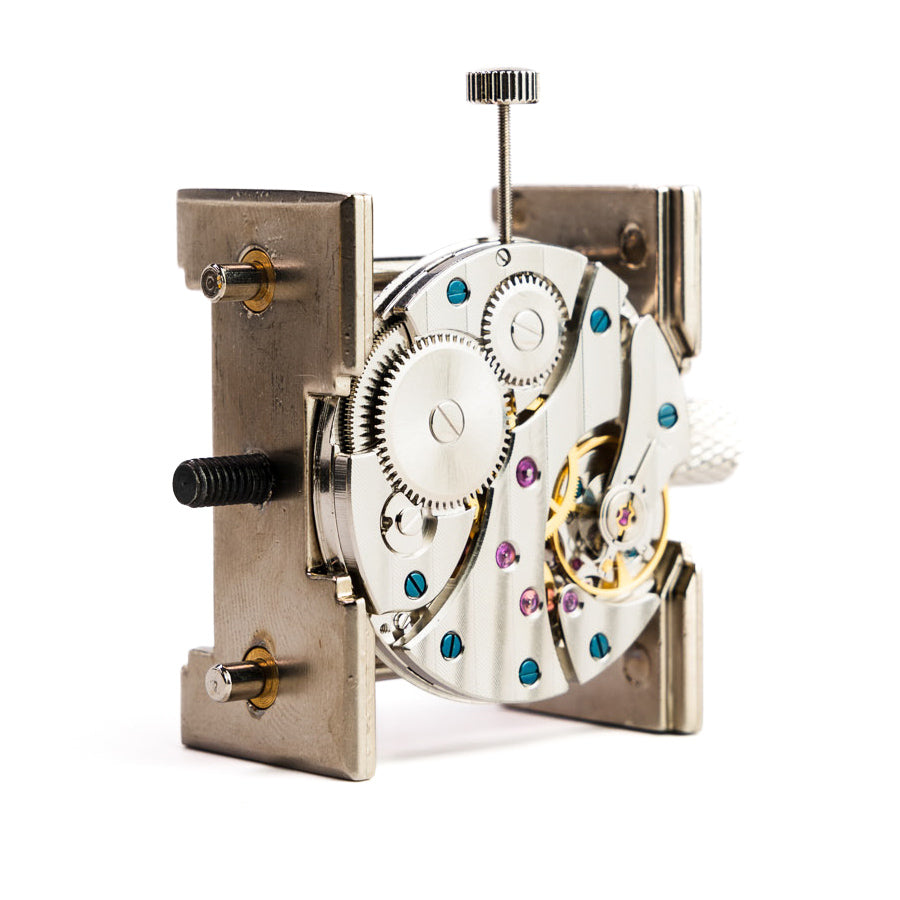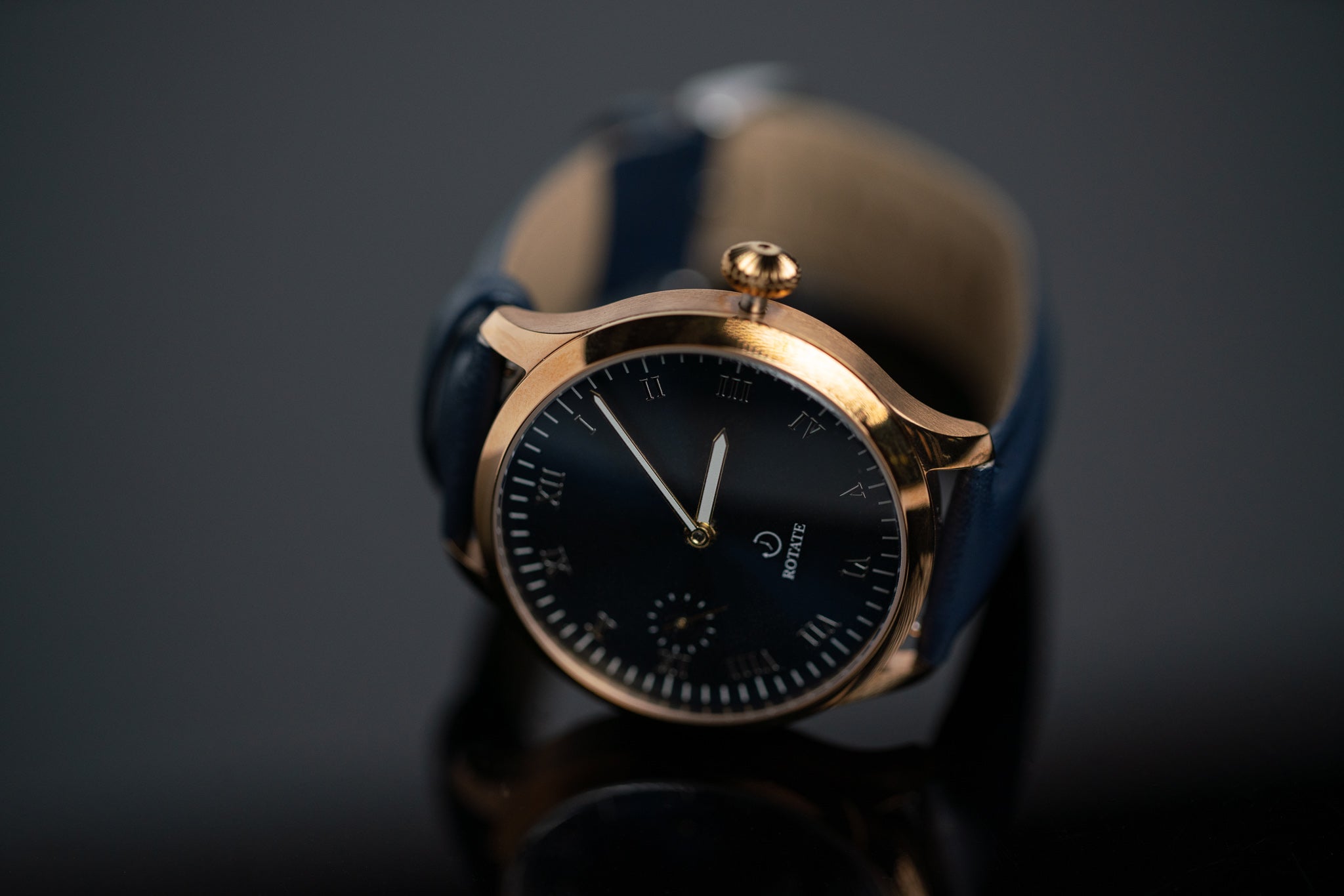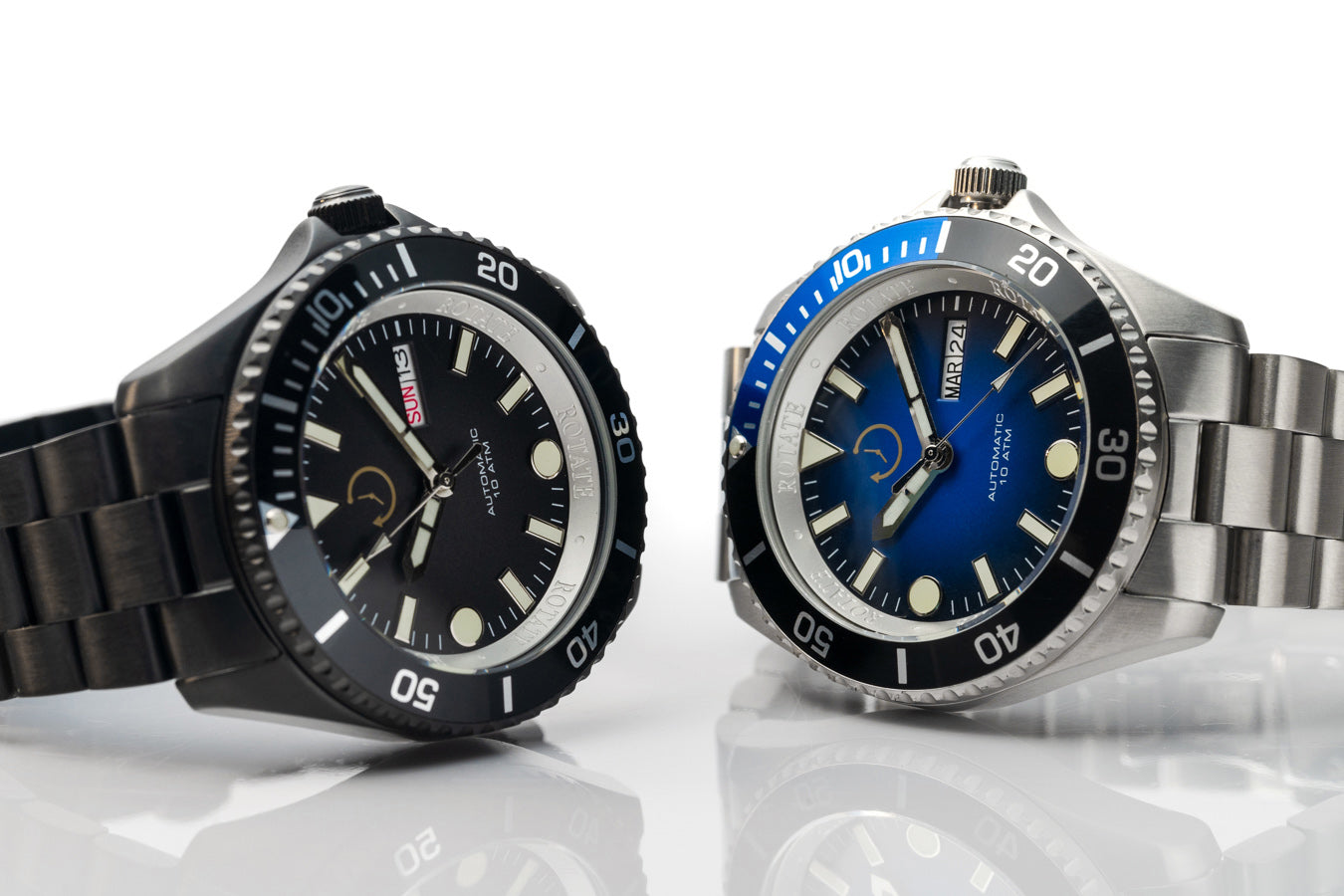
How to Begin Watchmaking: Your Starting Point
If you've ever been mesmerized by the craftsmanship behind a mechanical timepiece, you're not alone. Many people get hooked on the precision and beauty of watches and start asking themselves how to take the leap into the world of horology. Whether you're chasing a new skill or just looking to pick up a rewarding watchmaking hobby, you're in the right place.
At Rotate Watches, we're here to guide you step-by-step on how to make a watch, even if you've never held a watch tool before.
Learn Watchmaking: A Step-by-Step Guide on How to Make a Watch
1. Embrace Your Curiosity:
The first step in any journey is curiosity. Cultivate your interest in watches by exploring different styles, mechanisms, and the history of horology. Take the time to learn about the intricate movements and the artistry that goes into crafting each timepiece.
2. Understand the Basics:
Familiarize yourself with the fundamental components of a watch - the case, dial, hands, movement, and strap. Discover the differences between quartz and mechanical movements and learn how they power a watch.
3. Gather Knowledge:
Education is key. Dive into the world of watchmaking through books, online resources, and forums dedicated to horology. Understanding the terminology and concepts will empower you throughout your journey.
4. Choose the Right Tools:
Assemble the essential tools you'll need for watchmaking. A proper toolkit will include precision screwdrivers, tweezers, hand removers, movement holders, and more. Our watchmaking kits at Rotate Watches are meticulously curated to provide you with all the necessary tools.
5. Start with a Watchmaking Kit:
A watchmaking kit is your passport to hands-on experience. It provides you with the components and instructions needed to build your own watch from scratch. Rotate Watches offers a range of kits, from beginner to advanced, ensuring you find the perfect fit for your skill level.
6. Practice Patience
Your first watch won't be perfect, and that's completely fine. Watchmaking is a precise skill, and every attempt teaches you something new. Stay calm, go step-by-step, and take breaks when needed. A steady pace will help you avoid frustration and build better habits.
7. Learn from the Mistakes You Make
No one gets it all right the first time. A slipped hand or a misaligned crown can feel discouraging, but those slip-ups teach you more than any guide ever could. Mistakes are part of the process when exploring a watchmaking hobby.
8. Connect with Other Enthusiasts
Reach out to people who are also discovering how to get into watchmaking. Online groups, forums, and local meetups give you the chance to ask questions, share progress, and stay motivated. You're far from alone on this journey.
9. Keep Expanding Your Skills
There's always more to learn in the world of horology. As you get more comfortable, you might explore techniques like regulating a movement or servicing a vintage piece. Following trends, learning new terms, or studying complex movements can deepen your appreciation and skill set.
10. Enjoy the Process
Don't get so caught up in finishing the watch that you miss the satisfaction of each small step. The real joy in how to make a watch often comes from doing it yourself-from turning gears, fitting parts, and watching your creation come together.
At Rotate Watches, we're passionate about helping beginners succeed. With our hands-on, budget-friendly watchmaking kits, you'll get more than just tools-you'll get a meaningful entry point into a timeless craft.
FAQs
Q1: What tools are essential for a beginner in watchmaking?
You'll need screwdrivers, tweezers, hand removers, gloves, and a clean, well-lit workspace. Most **budget-friendly watchmaking kits** include everything to get started.
Q2: How much does it typically cost to start watchmaking as a hobby?
Most beginners spend between $140 and $300 on tools and kits. This investment gives you all the basics needed to enjoy your **watchmaking hobby** from day one.
Q3: Can watchmaking be self-taught, or is formal education necessary?
Many hobbyists are self-taught. Books, online tutorials, and **watchmaking kits** provide enough structure to start learning without needing formal schooling.
Q4: What are some tips for maintaining my handmade watch?
-
Keep the case and strap clean
-
Avoid exposure to extreme conditions
-
Handle winding and setting gently
-
Listen for odd sounds or loose parts
Q5: Where can I find communities or resources to support my watchmaking journey?
Watchmaking forums, online communities, and hobby groups are full of people sharing advice, progress, and encouragement. They're a great place to learn more about **how to get into watchmaking** and stay inspired.
Q6: Is watchmaking hard to learn?
It's challenging at first, especially if you've never worked with tiny parts. But with time, patience, and one of our beginner-friendly kits, you'll gain confidence quickly.
Q7: What tools do I need to start?
Essential tools include tweezers, screwdrivers, hand removers, gloves, and a dust-free workspace. All of these are usually included in **budget-friendly watchmaking kits**.
Q8: Can I learn watchmaking online?
Absolutely. There are tons of tutorials, videos, and communities online. Combining digital learning with hands-on experience is one of the best ways to grow.
Q9: How much do watchmakers earn?
Professional salaries vary widely based on skill and region, but experienced watchmakers can earn from $40,000 to over $100,000 a year. Many also pursue watchmaking as a side business or passion project.
{ "@context": "https://schema.org", "@type": "FAQPage", "mainEntity": [ { "@type": "Question", "name": "What tools are essential for a beginner in watchmaking?", "acceptedAnswer": { "@type": "Answer", "text": "You’ll need screwdrivers, tweezers, hand removers, gloves, and a clean, well-lit workspace. Most budget-friendly watchmaking kits include everything to get started." } }, { "@type": "Question", "name": "How much does it typically cost to start watchmaking as a hobby?", "acceptedAnswer": { "@type": "Answer", "text": "Most beginners spend between $140 and $300 on tools and kits. This investment gives you all the basics needed to enjoy your watchmaking hobby from day one." } }, { "@type": "Question", "name": "Can watchmaking be self-taught, or is formal education necessary?", "acceptedAnswer": { "@type": "Answer", "text": "Many hobbyists are self-taught. Books, online tutorials, and watchmaking kits provide enough structure to start learning without needing formal schooling." } }, { "@type": "Question", "name": "What are some tips for maintaining my handmade watch?", "acceptedAnswer": { "@type": "Answer", "text": "Keep the case and strap clean. Avoid exposure to extreme conditions. Handle winding and setting gently. Listen for odd sounds or loose parts." } }, { "@type": "Question", "name": "Where can I find communities or resources to support my watchmaking journey?", "acceptedAnswer": { "@type": "Answer", "text": "Watchmaking forums, online communities, and hobby groups are full of people sharing advice, progress, and encouragement. They’re a great place to learn more about how to get into watchmaking and stay inspired." } }, { "@type": "Question", "name": "Is watchmaking hard to learn?", "acceptedAnswer": { "@type": "Answer", "text": "It’s challenging at first, especially if you’ve never worked with tiny parts. But with time, patience, and one of our beginner-friendly kits, you’ll gain confidence quickly." } }, { "@type": "Question", "name": "What tools do I need to start?", "acceptedAnswer": { "@type": "Answer", "text": "Essential tools include tweezers, screwdrivers, hand removers, gloves, and a dust-free workspace. All of these are usually included in budget-friendly watchmaking kits." } }, { "@type": "Question", "name": "Can I learn watchmaking online?", "acceptedAnswer": { "@type": "Answer", "text": "Absolutely. There are tons of tutorials, videos, and communities online. Combining digital learning with hands-on experience is one of the best ways to grow." } }, { "@type": "Question", "name": "How much do watchmakers earn?", "acceptedAnswer": { "@type": "Answer", "text": "Professional salaries vary widely based on skill and region, but experienced watchmakers can earn from $40,000 to over $100,000 a year. Many also pursue watchmaking as a side business or passion project." } } ] }


